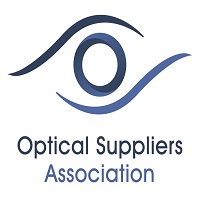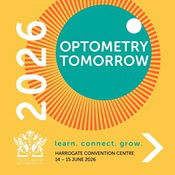Clinical Briefings
Clinical Briefings Index
Clinical Briefings
This section will bring you a range of clinical briefings to stimulate your interest. If you would like to contribute, get in touch.
Current Clinical Briefings
Further Links on coping with Vision Loss come from the www.wondermoms.org
Working with Visual Impairment
Sleep Tips for People Who are Visually Impaired
Resources for Adults New to Vision Loss
Blindness and the Law
Financial Assistance for the Visually Impaired
Elder.org have supplied us with further links that will improve on our knowledge on assisting those with vision loss
How to Adapt Your Home if You’re Blind or Visually Impaired
Home Fire Safety for People who are Blind/Low Vision
The Ultimate Guide to Optimizing Your Home for a Service Dog
House Hunting with Vision Loss
The Process of Adjusting to Vision Loss
How to Make Life Easier and Safer for Seniors with Low Vision
6 Early Warning Signs of Vision Loss
Autism, a helpful guide to working with Autism
From a selection written by Visualise Training & Consultancy:
Eyecare and sight loss sectors- It’s time to work better together to support the 250 people in the UK that start to loose their sight every day!!
I got more help at the cinema…..
I can’t see you, can you see me?
Coming out Blind
Don’t suffer sight loss on your own.
Referrals Change Lives
The Business Case for Low Vision
Making Optical Services available to Low Vision Patients.
Sight Loss shouldn’t mean Job Loss
Disempowered at the Eye Clinic
What more can be done for Lucy?
Seven Tips on making Low Vision Services profitable
Keeping abreast of assistive technologies for those with Sight Loss.
Cuts to low vision services: savage and short-term
Supporting low vision patients who can no longer drive
My Guide Dog in his Shining Armour; Barking Mad
You can listen to a podcast by Dan Williams demonstrating the the need for our Seeing Beyond the Eyes project and the hugely positive results we’re seeing by clicking below
PodCast for Seeing is Believing
Have you downloaded your Practice free Resource Pack yet? If not click here
Blue Light A hazard or an invention, what is your view
OC Safeguarding and Prevent Guidance
Domiciliary Code of Practice
Lone Working Guidance
Meibomiam Gland Dysfunction: Although the BCLA has printed and circulated to its members a fact sheet summarizing the findings of the International Workshop on Meibomian Gland Dysfunction (MGD), reproduced courtesy of the Tear Film & Ocular Surface Society (TFOS), they have kindly provided PHN readers with the ability to read and download the fact sheet by clicking on the link above.
Corneal and Limbus Insult treated by stem cells: It has been reported recently on www.singualarityhub.com that Italian researchers have demonstrated the long term effectiveness of using stem cells to cure corneal blindness. In order to read this briefing you will need to register/login which is free and takes just a couple of minutes of your time.
Comparison of Night Driving Performance after Wavefront-Guided and Conventional LASIK for Moderate Myopia (Steve C. Schallhorn, MD, David J. Tanzer, MD, Sandor E. Kaupp, MS, Mitch Brown, OD, Stephanie E. Malady, BS):
Purpose: To compare preoperative and postoperative changes in simulated night driving performance after wavefront-guided (wLASIK) and conventional LASIK (cLASIK) for the treatment of moderate myopia. Thanks go to Dr. Steve Schallhorn at Optical Express for his permission to publish a recent article from Ophthalmology. The research reported in the journal is of a study I conducted which clearly demonstrates the advantage of both a wavefront guided procedure (CustomVUe) and a femtosecond (Intralase) flap creation, reports Steve Schallhorn. In order to read this research paper you will need to register/login which is free and takes just a couple of minutes of your time.
Screening for Dyslexia and early learning problems: An interview with Kate McMahon inventor of “Go with the Gobbies”. She is an Optometrist who has developed a holistic approach to training and helping those with prior learning problems, dyslexia, dyspraxia and dyscalculia and visual stress, none of which are a factor of intelligence, race, social development or age. In order to read this briefing you will need to register/login which is free and takes just a couple of minutes of your time.























